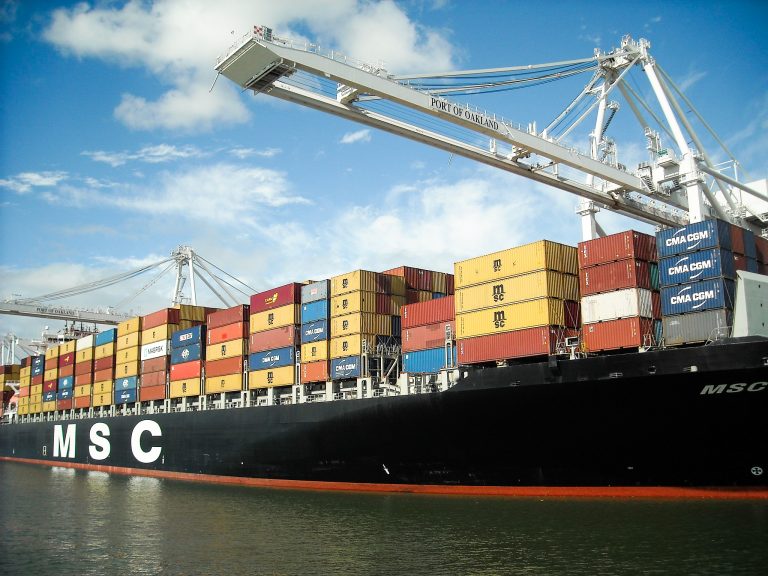
Carolina Watts
Staff Writer
Delegates from the International Maritime Organization (IMO) recently established a aggressive plan of action to reduce pollution from international shipping by mandating that by 2050, cargo ships will have to cut their emissions in half.
On April 13, IMO delegates met in London for a week to work through the plan’s details. So far, 170 states have agreed to the plan that Peter Hinchliffe of the International Chamber of Shipping in London called “a Paris Agreement for shipping,” but they have faced some opposition from Saudi Arabia, Panama, and the U.S.
The plan made emission reduction possible by encouraging more efficient cargo ship designs as well as alternative fuels. Shipping processes will also become more streamlined in order to maximize the fuel that is used.
Just like planes, trains, and automobiles, cargo ships release huge amounts of carbon. The Guardian reported in 2009 that pollution from the 90,000 cargo ships worldwide leads to $330 billion in healthcare spending. According to Science News, international shipping emissions account for between two and three percent of global CO2 emissions, the same amount as the entire country of Germany. The European Parliament estimates that in 2050, cargo ships could account for 17 percent of global emissions.
A recent BBC article stated that a Finnish energy and technology firm named Wärtsilä has shown that it’s possible to control a massive ship off of Scotland’s coast from San Diego, California. This simple joystick control of “smarter ships” allows ship owners to “more efficiently control the movement of their vessels.”
The change in fuel is essential for public health because of the high amounts of sulfur in heavy fuel oil. It contains nearly 1,800 times the sulfur content of diesel fuel from automobiles. Sulfur dioxide is not a positive addition to the atmosphere; in fact, it is what causes acid rain, which in turn, causes respiratory issues in humans and impacts nearly all aspects of any natural or man-made environment due to its harsh erosion characteristics.
This change caught cargo companies wildly off guard and they are, to say the least, very unprepared. A lack of investment towards these aggressive changes will make the year of implementation, 2020, a harsh realization of the world’s request for the shipping industry to change their ways. The scrambling efforts towards change will need to entail cleaner fuel or, if that is not possible in two years, a machine to clean dirty fuels. A possible “clean” oil is called marine gas oil, and it happens to cost about 1.5 times as much as the current shipping fuel used right now. Especially because of the construction of larger ships due to increased product shipping demands, the needed change is turning out to be much more complicated than expected.
Some nations don’t think that a 50 percent emission reduction is enough. Island nations such as the Marshall Islands feel the real pressure of climate change effects, as sea level rise threatens their culture’s very existence. These island nations want a 100 percent emission reduction because that is what they feel is necessary to instigate actual change towards the global climate issue.
An article by Quartz points out that, if the shipping industry were a country, it would be the sixth biggest greenhouse gas emitter in the world. Another Quartz article imposes the importance of doing something about this industry’s shipping emissions by pointing out that fossil fuels kill more people every year than the combination of wars, murders, and traffic accidents. This statistic alone should emphasize the importance of policy necessary towards change against subtle effects that we all endure from large industry greenhouse gases.













